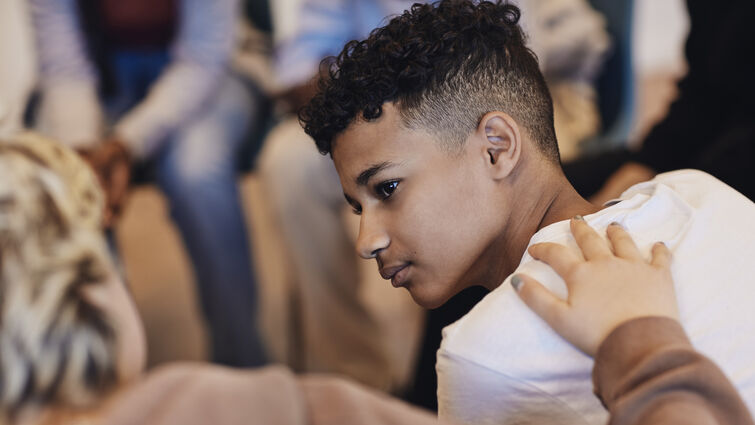
Kiti Freier Randall, PhD, a pediatric neurodevelopmental psychologist and chief of the Division of Psychological Services for the Department of Pediatrics at Loma Linda University Children's Hospital, is still tending to the aftershocks of a crisis the world would prefer to forget.
"We'd all love to pretend the pandemic never happened," Freier Randall said. "But for children, it wasn't just a moment in time; it became a defining part of their history."
The term she uses to describe it is "the pandemic echo." It's the ongoing, reverberating mental and emotional impact of COVID-19 on an entire generation of young people. And while the virus may have subsided, the psychological consequences have not.
"At a minimum, every kid had a trauma," Freier Randall said.
For teens, the pandemic stole milestone moments that shape identity and memory —proms, graduations, and in-person school life. For younger children, it interrupted critical windows of speech, social development and emotional regulation.
Freier Randall said providers noticed a surge in referrals for speech and language delays beginning in 2023.
"There was this assumption that now that the pandemic was declared 'over,' those issues would disappear. But trauma doesn't vanish on command," she said. "There are long-term ramifications, especially for those already at risk."
A mental health epidemic within a pandemic
Even more alarming, Freier Randall said, was the spike in children presenting with suicidal ideation. Before the pandemic, the psychology consultation service at Loma Linda University Children's Hospital saw these cases maybe once every couple of months." But during the height of the pandemic, she recalls, "80% to 90% of our mental health consults were children with suicidal thoughts or attempts."
The crisis was so widespread that in 2021 the American Academy of Pediatrics, the Children's Hospital Association, and the American Academy of Child and Adolescent Psychiatry jointly declared a national state of emergency in children's mental health.
Girls between the ages of 14 and 16 were hit especially hard. "That age group experienced some of the highest rates of suicidal ideation," Freier Randall said, pointing to the devastating impact of prolonged social isolation during critical developmental years.
Children with chronic illnesses, particularly those with high scores in adverse childhood experiences (ACEs), also showed elevated signs of psychological distress. These children, already burdened by physical conditions like diabetes, faced a compounded risk. "Chronic illness plus high ACEs scores during a time of national trauma, it's a perfect storm," she noted.
ACEs, PACEs, and the path forward
Freier Randall frequently references the landmark ACE study (Adverse Childhood Experiences), originally conducted in Southern California with over 17,000 adults through the Kaiser Foundation. The study identified 10 types of early adversity, five related to maltreatment and five to household dysfunction, and linked them to long-term health problems in adulthood.
Building on this, California introduced PACEs, or Pediatric ACEs, urging pediatricians to screen for childhood trauma and provide trauma-informed care.
"The more adversity in childhood, the greater the risk for not just mental health challenges but also physical illness later in life," Freier Randall explained. "The pandemic adds a baseline score of one to every child in America. We have to treat it like the trauma it was."
Beyond the Checklist
A major concern, Freier Randall said, is the oversimplification of children's mental health in post-pandemic care.
"We're doing these behavioral checklists, saying 'this kid is anxious,' or 'that one is oppositional' but we're missing the why," she said. "Behavior always has a reason. We must ask: What did this child experience? What are they carrying with them from those pandemic years?"
Instead of one-size-fits-all treatment plans, she advocates for individualized approaches considering the visible symptoms and the invisible histories of children's lives.
"Some kids are acting out; some are shutting down. But both behaviors tell us that they need help, not judgment."
Freier Randall is hopeful despite the challenges, especially when communities prioritize awareness and response over silence and dismissal.
"The good news is, children are incredibly resilient," she said. "But resilience isn't something they can find alone. It comes from support from families, schools, healthcare providers, and a society that understands what they went through. We don't need to live in the past. But we need to remember it because without understanding where this behavior is coming from, we can't possibly support where our children are going."
If your child is struggling with anxiety, depression, or behavioral challenges, you’re not alone, and help is available. Contact Loma Linda University Children’s Hospital Mental Health Department at 909-558-9113 or visit online to schedule an appointment with our compassionate experts.
